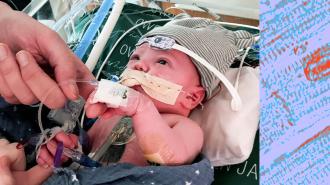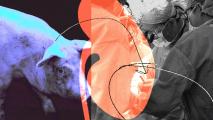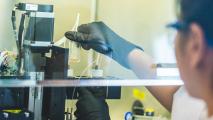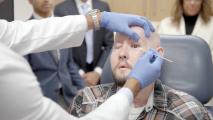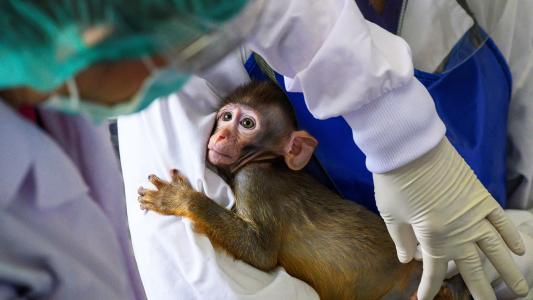A toddler is thriving nearly two years after undergoing the world’s first partial heart transplant, according to a new study published by his doctors at Duke Health.
“This publication is proof that this technology works, this idea works, and can be used to help other children,” said Joseph W. Turek, first author of the study and Duke’s chief of pediatric cardiac surgery.
The challenge: Your heart has four valves that act like doors, ensuring blood flows through the organ in only one direction. If one of your valves stops working properly, it can be replaced with a mechanical valve that will likely last the rest of your life, or a biological valve from a pig, cow, or deceased human donor that can last 10-20 years.
“It’s probably one of the biggest advances in congenital heart surgery in the last 40 years.”
Joseph W. Turek
For the more 330,000 children worldwide born with heart valve defects every year, repairing the problem isn’t so straightforward. Currently available replacement valves don’t grow with the child, so they may need to undergo as many as five risky open-heart surgeries as they age so that doctors can replace their now-too-small heart valve with a slightly larger one.
The other option — a full heart transplant — eliminates the need for those repeated surgeries, but there aren’t enough donor infant hearts to help everyone. If a heart is available, the child will need to take heavy doses of immunosuppressants for the rest of their life. Those not only cause nasty side effects, they also leave the child at higher risk of infection.
A partial heart transplant: About 43% of hearts donated from children/young adults are deemed unsuitable for transplantation, but at least some of those hearts have functioning valves, even if other parts of them don’t work properly.
This gave researchers at Duke Health the idea to perform what they say was the world’s first partial heart transplant in the spring of 2022, transplanting the functioning arteries and valves from a donated heart that couldn’t be used for a traditional transplant to repair defective valves in newborn Owen Monroe.
They’ve now reported that Owen’s new valves are fully functional and growing along with the rest of his body. He is also taking 75% less immunosuppressants than would be required after a full heart transplant, and his doctors are optimistic he won’t need any more surgeries.
“What’s particularly remarkable about this procedure is that not only is this innovation something that can extend the lives of children, but it makes use of a donated heart that would otherwise not be transplantable,” said Michael Carboni, Owen’s pediatric transplant cardiologist.
Domino effect: In the nearly two years since the first partial heart transplant, 12 more infants have undergone the operation, and in May 2023, a team at NewYork-Presbyterian / Columbia took the concept a step further, performing the world’s first “domino” partial heart transplant.
First, an infant named Mia had her heart, which had healthy valves but was not strong enough to function normally, replaced by one from a donor. The valves from Mia’s heart were then transplanted into an infant named Brooklyn who had strong heart muscles but faulty valves.
One month later, the Duke team performed its first domino partial heart transplant, and Turek is now working to launch a clinical trial to make the procedure more widely available.
“It’s probably one of the biggest advances in congenital heart surgery in the last 40 years,” said Turek in November 2023. “It’s a wonderful setup where two children can benefit from one initial gift.”
“My mission is to spread this idea to other institutions and make it available for kids across the country and hopefully across the world,” he added.
We’d love to hear from you! If you have a comment about this article or if you have a tip for a future Freethink story, please email us at [email protected].
